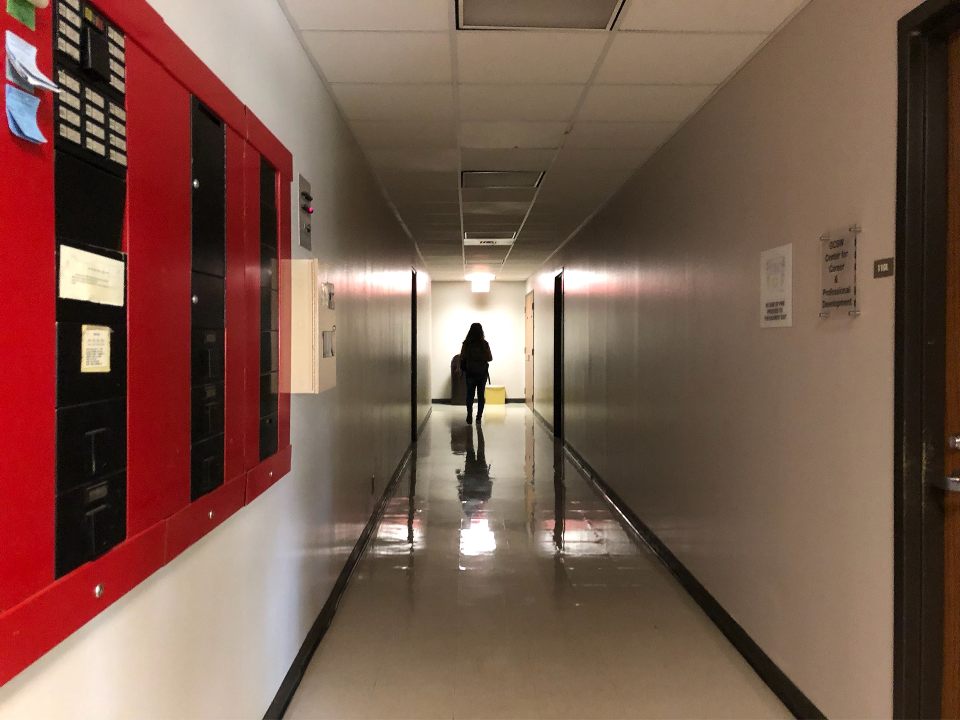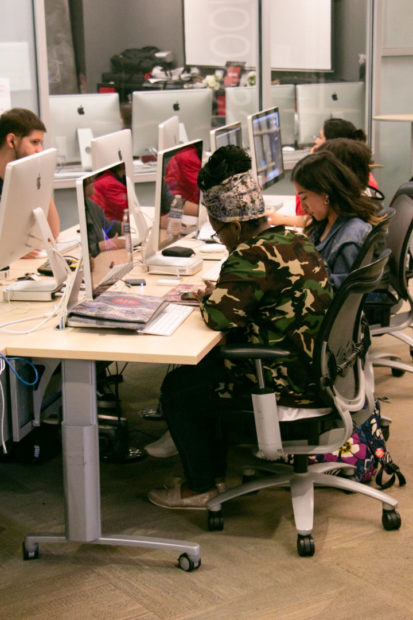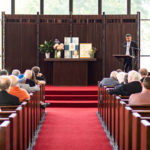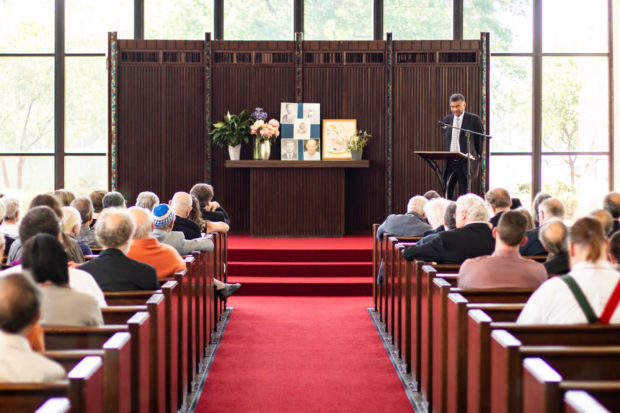

The Graduate College of Social Work seen with its emergency lights on. The University has had two power outages in recent weeks. When that happens, research and equipment can suffer permanent damage.| Trevor Nolley/The Cougar
Two power outages crippled around half the campus two weeks ago, threatening research, closing parking lots, and forcing classes to cancel or move outside.
The first outage was caused by a transformer failing and the second happened due to repairs triggering a safety mechanism, according to UH Facilities.
While the sudden cuts may seem harmless, they can damage sensitive research machines and disrupt experiments.
“Many research instruments cannot be shut off abruptly without a long recovery period after power is restored, and for some instruments, there is permanent damage,” said David Hoffman, department chair and professor of chemistry.
Hoffman said when the lights go out, the department loses productivity and may be forced to delay experiments, which means losing progress in research.
Jonathan Snow, a professor of geochemistry at UH who lost research equipment to previous outages, was sympathetic to his colleagues.
“The University needs to do a better job keeping power on to research infrastructure,” Snow said.
In an email sent out to all students, faculty and staff, Jim McShan, senior vice chancellor and senior vice president, said the University sought to compensate researchers for their losses and prevent future outages.
“This was as unacceptable to us as it was to you,” McShan said in the email. “I want to assure you we are proceeding with extreme caution and doing everything possible to restore all equipment without further unplanned outages.”
McShan also said that they brought in a different technical repair crew to continue repairs in a safe manner, after the first repair crew initiated the second outage.
“The work that you do at our University, particularly some of our research that is vulnerable to interruptions in power, is of extreme importance to all of us,” McShan said.
McShan urged those who lost work to reach out to him and begin the process for quantifying their losses and reimbursement.
“We will address these on a case by case basis and determine how to proceed so that your losses can be properly accounted for,” McShan said.
Raymond Bartlett, senior associate vice chancellor and senior associate vice president of finance, outlined the process for claiming a loss due to the power outages, also advising people to email McShan directly.
“The University carries insurance for losses that may arise from unplanned events such as these,” Bartlett said.
These matters are handled by the UH Risk Management department, which is currently working with faculty referred by McShan.
“Those who are referred to Risk Management are asked to fill out this property claim form, which asks for a description of what was lost, the original and replacement cost, as well as other pertinent questions,” Bartlett said.
There is no set deadline to make an insurance claim, Bartlett said, but that UH is working to document losses so they could begin to estimate the total cost of the outages.
“Through the reporting process we have established, we are expecting to be able to quantify any loss,” Bartlett said.
In the campus-wide email, McShan said that the current electrical system equipment of UH is “aging and approaching the end of its lifecycle.”
McShan said that the University has begun an “energy master plan” to address some of the older equipment and expand with UH’s rapid growth, with the goal of future energy and cost savings.
“We are committed to ensuring all our infrastructure is operational at the level required for a Tier One research institution, and we will settle for nothing less than that,” McShan said.
news@thedailycougar.com
—
“When the lights go out, research suffers” was originally posted on The Daily Cougar























